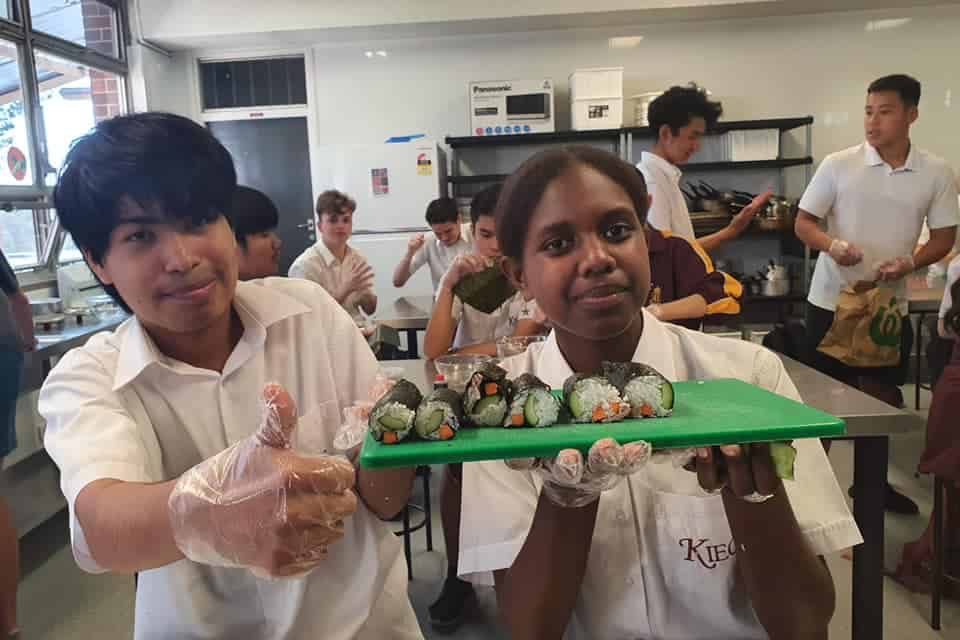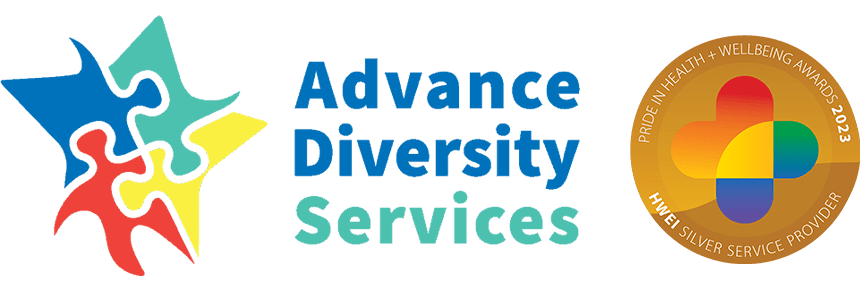A colourful infographic designed by Advance Diversity Services (ADS) conveys easy-to-digest feedback from students who participated in cooking sessions ADS ran at the Kogarah Intensive English Centre (IEC) in 2020-21.
‘We ran the sessions to show young people who are new to Australia how simple and affordable it is here to cook and eat healthy food,’ said Anthony Scerri, ADS’s Manager for Settlement and Community Services.
‘The infographic captures what the students learned from taking part – and can easily be used by others to help them make healthier choices.’
South Eastern Sydney Local Health (SESLH) funded the cooking sessions as part of its YHunger project which supports youth services to work with vulnerable youth in:
- providing and preparing healthy food and drinks
- engaging youth in living skills related to healthy eating and physical activity, and
- reviewing practices relating to healthy eating and physical activity.
ADS’s [then] Youth Worker, Salvin Kumar, ran 12 classes at the Kogarah IEC as part of the school’s pre-existing breakfast club and using recipes from the Yhunger cookbook. Students were also encouraged to provide and devise their own recipes. The classes built on Healthy Lunchbox Sessions run previously by ADS at the school and which used content from NSW Health.

Caption: Students who participated in cooking sessions run by ADS at the Kogarah Intensive English Centre (IEC) learned how to make healthy food as part of the YHunger Project.
Project feedback has been positive and ADS’s final report to SESLH notes: ‘Teachers said the students were really engaged when cooking. There was also lots of teamwork and networking. Since the program rolled out right after the Covid lockdowns, it was exactly what the students wanted.’
Mr Scerri said ADS’ Settlement Engagement and Transition Support (SETS) Program provides services to newly arrived migrants who live, work or study in St George and Sutherland Shire. He was therefore pleased the project had achieved its goals to:
- Strengthen relationships and links ADS has with the community and the school.
- Foster knowledge of the nutritional and dollar value of the types of food that Australia produces which are different to a client’s place of birth/background.
- Enable students to share knowledge gained from the classes with their families, including showing them how to make easy, healthy breakfasts.
Survey gleans valuable feedback
ADS recently surveyed the students to find out what nutritional information and healthy habits they had retained since the end of the program.
The survey asked:
- What did you most like about being involved in the cooking sessions at the Kogarah Intensive English Centre?
- How often would you have prepared healthy breakfast food and drinks before you were involved in the cooking sessions?
- What are two things you learned during the sessions about healthy eating generally and the importance of eating a healthy, nutritional breakfast?
- What did you discover about the cost of food and which foods are better value for money?
- How often have you made yourself and/or your families/friends healthier food and drinks since you were involved in the sessions?
- How much more likely are you now to choose a healthy snack over a less healthy option?
- What is your favourite healthy breakfast option?
- What did you most like about being involved in the cooking sessions at the Kogarah Intensive English Centre?
- How often would you have prepared healthy breakfast food and drinks before you were involved in the cooking sessions?
- If you were asked to encourage a student who was reluctant to cook and eat healthy food about how affordable, easy and tasty it is, what would you say to them?
Answers received were distilled to form the following seven key points for the infographic.
Balance – I sometimes used to skip breakfast but my habits have improved and I now cook a healthy breakfast once or twice a week.
Variety– Healthy food can be delicious! Preparing and eating a diverse range of food is important.
Better breakfast – A cheaper, healthier, but still tasty option for breakfast is bread and milk.
Healthy habits – I now drink more milk and water than I do coke, and I also eat more vegetables.
Nutrition – To be really healthy and set yourself up for the day, it is better to eat nutritious cereals and to cook your own breakfast.
Healthy options – Yoghurt and fruit, and bread and avocado are now some of my favourite healthy breakfast options.
Eat at home – To get value for money, it is better to prepare and cook fresh food at home. Nuts are a great healthy snack.
Cooking – It was great to learn how to cook. Since these sessions, I’ve made myself and my family healthier food almost every day.
Mr Scerri said, ‘The infographic will help to ensure the nutritional learning lives on and is easily accessible to our clients as well as to other schools and their students.
‘It conveys the information simply enough for it to be understood by people for whom English is new and a second or third language.’
Download the YHunger Infographic here.
Credit: Kogarah IEC
